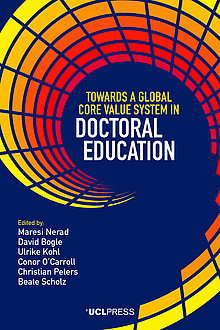Support for you and your doctorate
Graduate Centers in Berlin - at your service!
During the current period of the national excellence initiative (2018-2025), all courses and services offered by the Berlin member universities of Berlin University Alliance (BUA) will be open to all members of these institutions.
All graduate centers offer transferable skills courses (scientific soft skills) and further courses and services such as project management, intercultural and general communication training, mentoring programs, conflict consultation, information about family support work-life balance. Courses and services are available to doctoral candidates and postdoctoral researchers in Berlin (all members of M&B are entitled to books courses).
Internal webpage to key competencies / transferable skills / scientific soft-skill courses, some of them mandatory for your doctorate:
http://www.mind-and-brain.de/doctoral-program/scientific-soft-skill-key-competencies-courses/
BUA member universities’ graduate centers (with wide-ranging services):
– Humboldt Graduate School
– Dahlem Research School
– TU Center for Junior Scholars
– Office of doctoral studies Charité
– Berlin University Alliance
For example:
HU Berlin Graduate Center Life Sciences
https://fakultaeten.hu-berlin.de/de/lewi/karriere/graz
Dr. Julia Klauder, Coordinator of the Graduate Center
E-mail: graduiertenzentrum.lewi@hu-berlin.de
Phone: +49 30 2093-46286
Office: Room 1123, Invalidenstraße 42, 10115 Berlin
As coordinator of the Graduate Center, I am the contact person for all matters concerning doctoral candidates, doctoral candidates and supervisors that go beyond the formalities of the doctorate. My tasks include:
- Planning and organizing all further education, networking and information offers at the Graduate Center for Life Sciences
- Providing information to those interested in doing a doctorate at the Faculty of Life Sciences
- Confidential advice for doctoral candidates and supervisors in the event of problems arising
- Mediation between doctoral candidates or the elected doctoral candidate representatives and the "official bodies" in the faculty, such as the Faculty Council and its representatives, the Vice Dean for Research or the group of academic employees
HU Berlin Graduate Center Faculty of Philosophy
fakultaeten.hu-berlin.de/de/philfak/wissenschaftlicher-nachwuchs/graduiertenzentrum/waehrend_der_promotion/landing_waehrend_der_promotion
Charité
https://promotionskolleg.charite.de/tipps_tricks_beratung/
https://promotionskolleg.charite.de/tipps_tricks_beratung/gute_wissenschaftliche_praxis/
https://www.charite.de/forschung/service_fuer_forschende/geschaeftsstelle_gute_wissenschaftliche_praxis/#c30027269
Doctoral associations and support groups (esp. for internationals)
At HU Berlin:
(Note: If you are not a HU member, please find out about similar groups and associations at your university and let us know about them.)
HU-Docs
If you are pursuing your doctorate in Berlin, become a member of HU-Docs e.V.
To contact them: https://www.projekte.hu-berlin.de/en/docs-en/contact
To become a member, please fill out one of the two membership forms and send it to us (see contact details) or hand it in personally at one of our events: https://www.projekte.hu-berlin.de/en/docs-en/the-association-hu-docs/join-us/become-a-member
HU Docs write: You are always welcome to contact us if you are facing any problems with your doctorate or life in Berlin, especially now during Covid. We are volunteer doctoral candidates, so it will maybe take a few days until we come back to you, but we will keep your request private and try to help you or point you to the relevant institutions for further help.
In principle, participation in our events does not require membership. Nevertheless, it is worth becoming a member and thus supporting our work! Membership is free of charge and does not lead to any further obligations. Advantages of membership:
- You can join our Telegram and Whatsapp groups. There you can exchange ideas with other doctoral candidates, ask questions and get help.
- You will receive the newsletter with current information about our events.
- You can elect the new board at the annual general meeting in summer.
- You can stand for election to the board yourself, and actively shape the future of Berlin doctoral candidates.
- You support an effective representation of the interests of doctoral candidates at Humboldt-Universität zu Berlin.
Orbis Humboldtianus: Club for International Students
Orbis - as our International Club is affectionately called by students - is a place where many international events at HU are held, where international students can meet German students and where they can register for various counseling services and cultural programs e. g. Visa service, language exchange market, regulars ́ table, city tours, museums, concerts, etc. For further information, please refer to the website.
https://www.rewi.hu-berlin.de/en/sp/angebote/master/idr/about-the-idr-master-program/general-information/orbis-humboldtianus-club-for-international-students
International Scholar Services
The International Scholar Services (ISS) support researchers and PhD candidates from abroad and help them settle in to university life. International Scholar Services would like to ensure that your time at Humboldt-Universität and in Berlin gets off to a good start. We help you take care of legal questions as pertained to residence permit before your arrival and questions with regards to the services offered by HU in the first few weeks after you have arrived. We support during your stay and also advise you on what you need to do before you leave Berlin.
https://www.international.hu-berlin.de/en/wissenschaftler/international-scholar-services
Supervision: Conflicts and difficult situations and how to resolve them
Topics may include: Conflicting opinions about a specific subject or situation between doctoral candidate and supervisor / Lack of supervision or contact time / Disappointed expectations / Unclear expectations and/or communication during the supervision process / Lack of feedback / Unobjective or harsh feedback / Control vs. autonomy / Incompatibility of expectations / Clash of personalities / Clash of science cultures / Abuse of power / Difficult personalities / Authorship / Publication problems / Intellectual property
HGS and other institutions at Berlin universities (and beyond)
We have dedicated an internal webpage to supervision conflicts and how Humboldt Graduate School (HGS), other graduate centers or university institutions can support you:
http://www.mind-and-brain.de/doctoral-program/conflict-consultation/
M&B Ombudsperson for supervision conflicts
Candidates of the M&B doctoral program and of the RTG 2386 may also turn to the M&B Ombudsperson. Talking to Mareike is free and will be treated confidentially:
Dr. Mareike Bayer
mareike.bayer@hu-berlin.de
Mareike is a M&B doctoral and postdoctoral alumna and thus knows our graduate school well. Currently, she is a senior postdoctoral researcher at HU Berlin, Department of Psychology.
Problems with project / time management and your way out
Topics may include: Procrastination / Writing crises - not getting started or not being able to define a cut-off / Writings labs / Writing retreats / Scientific writing / Project management / Time management / Coaching / Mentoring programs
Support is available through the BUA graduate centers:
http://www.mind-and-brain.de/doctoral-program/scientific-soft-skill-key-competencies-courses/
Mentoring programs - support, networking and fellowship
The Peer Mentoring program supports doctoral candidates still in search of an appropriate career path. It is tailored to doctoral candidates who do not yet know which direction to take after their dissertation. The core components of the peer mentoring concept are the moderated exchanges between the participants and the planning of a “Career Day”, to which the participants can invite professionals from interesting occupational fields. The One-to-One Mentoring program supports doctoral candidates in their transition to the next career phase. It is tailored to doctoral candidates who already have an idea about their future careers. The core component is a temporary, supportive relationship between an experienced person (mentor) and a young talent (mentee). The mentor should be experienced in the field which the mentee would like to enter after the completion of their dissertation, e.g. academia or industry.
You can participate in both of the above-mentioned programs.
Read more about the Mentoring programs:
http://www.mind-and-brain.de/doctoral-program/mentoring-and-coaching/
Career development and how to plan for your career
Topics may include: Making a career / Boosting your career / Career skills / Worries about the future / What comes once your thesis is defended / Leaving the academy
Please start talking (better sooner than later) to your supervisor about your ideas, plans and worries and ask for their support.
However, we have also dedicated several internal webpages to career issues, with many M&B alumni reports, further information, books, links to documents, career events and career development courses:
http://www.mind-and-brain.de/career/
We have dedicated an internal webpage to further information about mentoring and coaching (which may also be suitable for clarifying life decisions):
http://www.mind-and-brain.de/doctoral-program/mentoring/
See also this initiative at our partner institution Einstein Center for Neurosciences:
https://www.ecn-berlin.de/career/CDI.html
Learning German
With the linke below you will find HU information on different Learning German options in Berlin, both general and specifically for registered doctoral candidate at HU Berlin. Please check for similar information at your university.
Mental health issues
We have dedicated an internal webpage to mental health issues during the doctorate, with further information and links, including information on Scholar Minds and topical lectures and courses, publications and surveys, ressources (such as a self-help tool), how to get support and where to find psychological and institutional help:
http://www.mind-and-brain.de/overview/mental-health/
You can also turn directly to the website of Scholar Minds:
https://www.scholar-minds.net
Good Scientific Practice
Topics may include: Good Scientific Practice rules and issues in general / Authorship questions / Problems with the review process / Publication of the required papers / Authorship / Legal problems / Intellectual property
At the Berlin School of Mind and Brain, we have dedicated an internal webpage to Good Scientific Practice, with further information on courses and documents:
http://www.mind-and-brain.de/doctoral-program/good-scientific-practice/
At Charité:
https://promotionskolleg.charite.de/tipps_tricks_beratung/
https://promotionskolleg.charite.de/tipps_tricks_beratung/gute_wissenschaftliche_praxis/
https://www.charite.de/forschung/service_fuer_forschende/geschaeftsstelle_gute_wissenschaftliche_praxis/#c30027269
Equal Opportunity
We have dedicated an internal webpage to equal opportunity, with links to events, courses and further information:
http://www.mind-and-brain.de/doctoral-program/equal-opportunity-metis/
Children and family
Please refer to our webpage on Children and family (under Overview)




